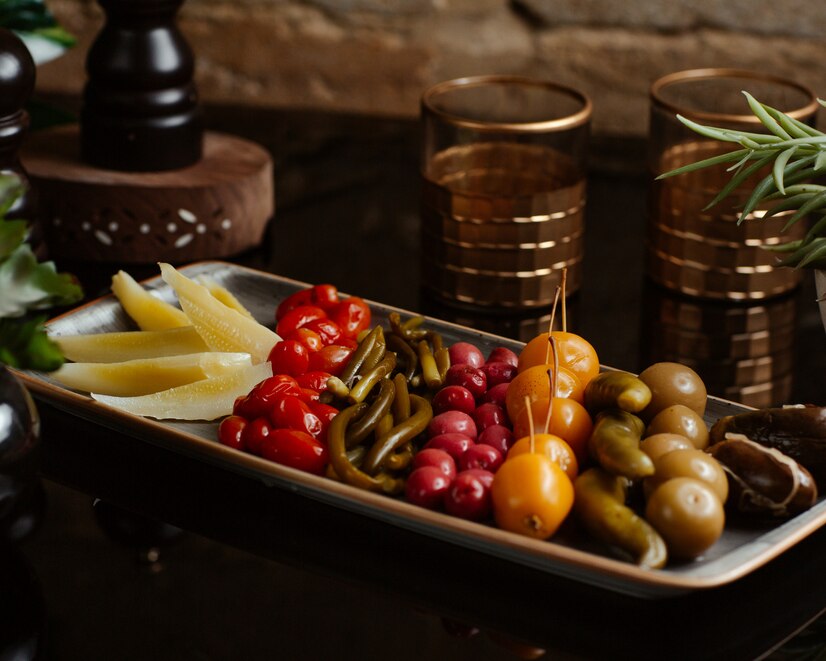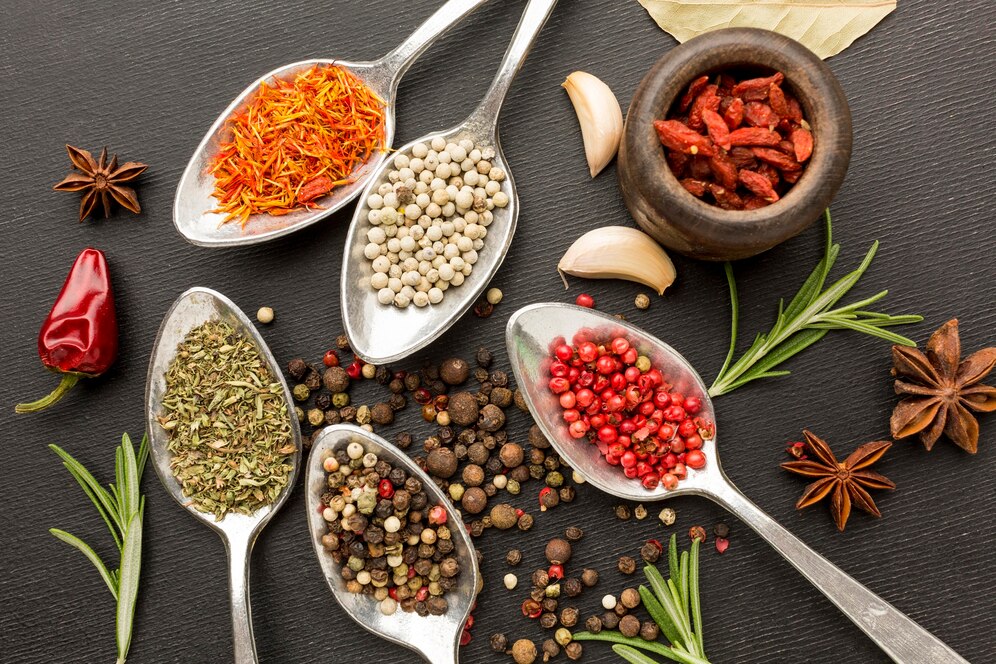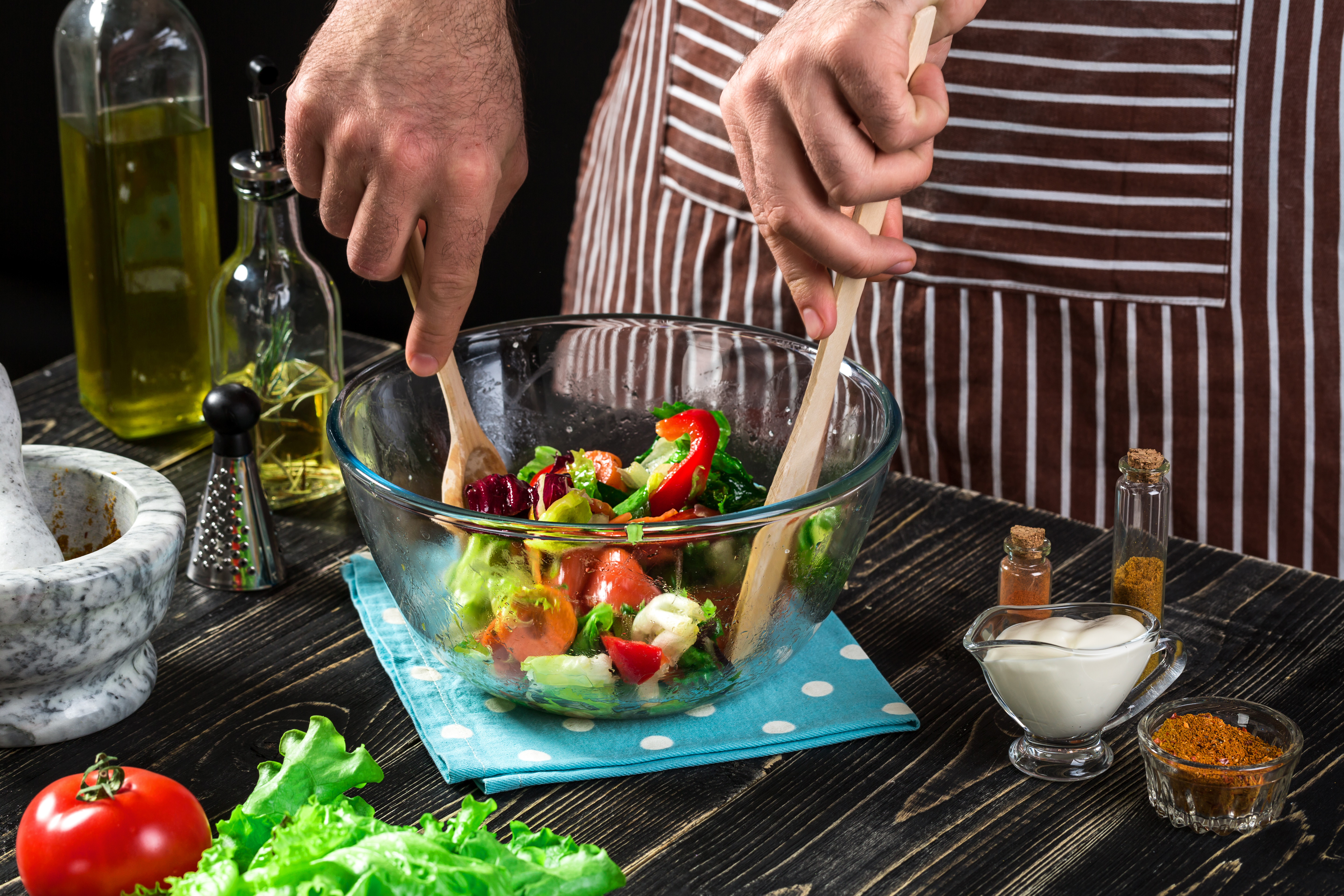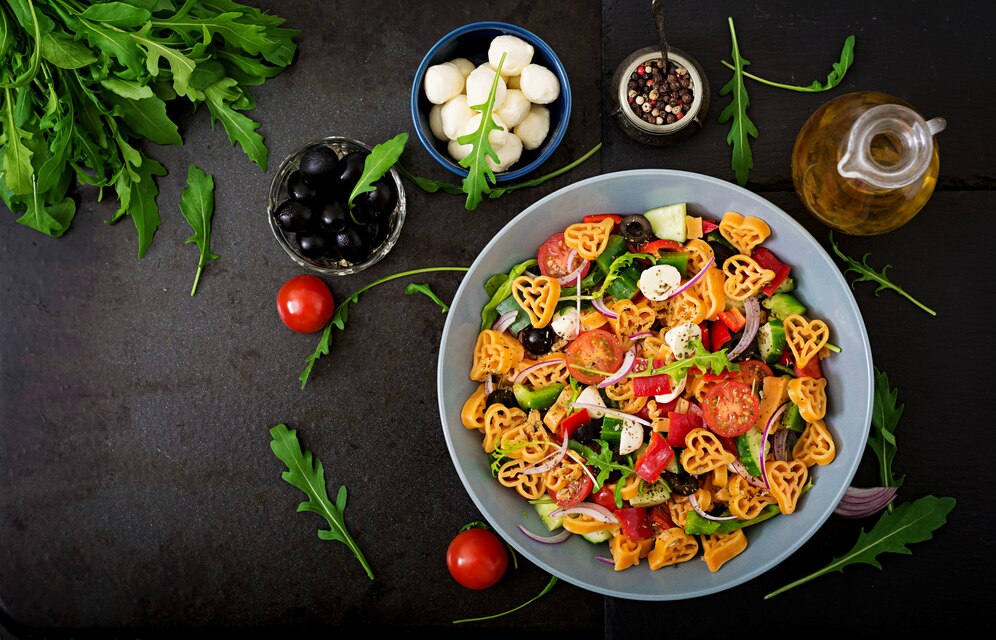
How Mediterranean Food Travels From The Olive Trees To Your Table
Years have gone into developing Mediterranean diet recipes that are the ideal balance of flavour, colour, and scent. Mediterranean food is currently quite popular worldwide and is renowned for its use of fresh ingredients and health advantages. Do you, however, understand why Mediterranean olive fields send you such wonderful food? Let us examine the history, composition, and culinary impact of Mediterranean cuisine on the globe.
Where Mediterranean Food Originated Historically
Mediterranean food has a rich history that is as intriguing as its flavours. It dates back to ancient times and has been influenced by several cultures, including those of the Greeks, Romans, and Arabs. Each contributed to what we now know as a diversified food culture.
Effects of Geography
The Mediterranean basin includes portions of the Middle East, North Africa, and southern Europe. Its moderate weather makes farming there perfect. Fresh fish is what has changed the people in this area. It has affected farming since it depends on well-drained soils near water sources. In this area, eating fresh fruits and vegetables while they are in season is fundamental to the culinary customs. There’s saltwater fish as well.
Important Components of Mediterranean Food
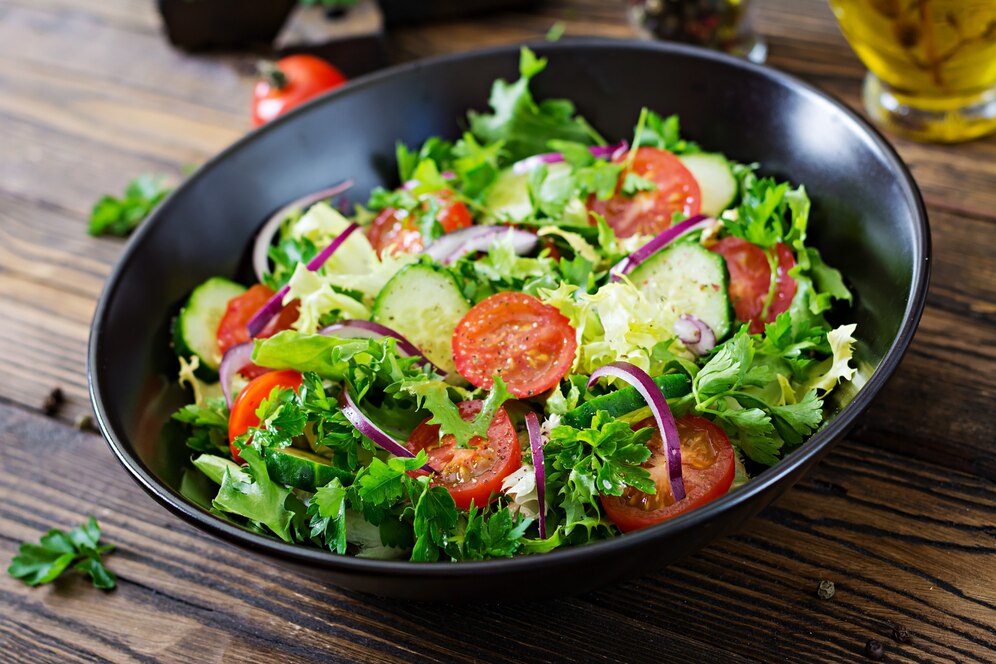
Olives & Olive Oil
The most significant component of Mediterranean cuisine is the olive. The oil from olives, known as “liquid gold,” is picked, pressed, and extracted. It is then used to cook and make sauces.
Fresh Fruits and Veggies
Mediterranean diets heavily include fresh fruits and vegetables. Produces that are both aesthetically pleasing and nourishing are fruits and vegetables like tomatoes, peppers, cucumbers, and citrus fruits.
Food
Because it is located near the Mediterranean Sea, the cuisine typically contains a wide variety of fish. People typically barbecue, bake, or add fish, octopus, and shellfish to soups.
Grains and Beans
Many classic meals feature grains and legumes, such as chickpeas, lentils, and wheat. These are commonly served as side dishes or in soups.
Spices & Herbs
Mediterranean cuisine has distinct flavours derived from herbs and spices such as cumin, paprika, and rosemary, as well as basil, oregano, and rosemary.
What Olive Oil Does
How Is The Product Created
The olives are meticulously selected, generally by hand, in the groves, the first stop on the olive oil tour. The oil is then extracted from the olives by pressing them, a process that hasn’t changed much in hundreds of years.
Health-Promoting
Olive oil’s health benefits are well documented. Its monounsaturated fats and antioxidants support heart health, lower inflammation, and enhance general wellness.
In Culinary Arts
In Mediterranean cooking, olive oil is a multipurpose ingredient used for baking, frying, sautéing, and even dressing salads. Its rich flavour makes every meal better.
Mediterranean Cuisine Is Noted For Its Taste
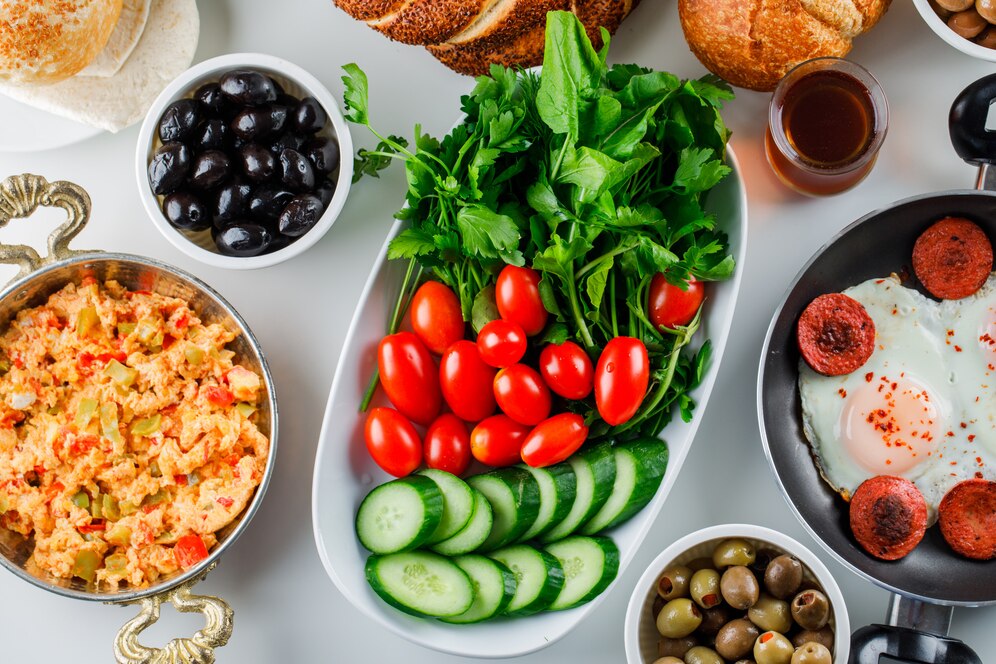
Greek Noodle Delight
Greek moussaka is a comfort meal of the best kind. This filling casserole consists of layers of eggplant, meat, and béchamel sauce.
Italienne Pasta
Spaghetti and lasagna are two very popular Italian pasta dishes worldwide. The different Italian regions have unique pasta recipes, frequently using fresh, locally produced ingredients.
Paella from Spain
Paella is a traditional Valencian dish from Spain. It’s a delicious rice dish made with saffron, shellfish, and sometimes beef. It demonstrates what Spanish cuisine is actually like.
Kebabs from Turkey
Turkish kebabs, made from marinated and perfectly grilled meat, are an essential component of Mediterranean cuisine. They are available in various forms throughout the region.
How To Cook In The Mediterranean
Grilling
Many people enjoy grilling meats and vegetables, which impart a smokey taste. People typically do it with their family when they come together.
Making Baked Products
You need to bake bread and cakes. Baked delights include famed Italian bread and Greek spanakopita.
Cooking Slowly
Slow cooking, such as in tagines or clay pots, allows aromas to combine and meat to tenderise, resulting in delicious-smelling meals.
Using New And Raw Ingredients
Many Mediterranean dishes, such as salads and mezes, rely on fresh, raw ingredients to maximise flavour and nutrients.
The Mediterranean Diet Promotes Good Health
Heart Disease
The Mediterranean diet’s benefits to heart health are well established. It lowers the chance of cardiovascular disease by encouraging whole grains, fresh fruits and vegetables, and good fats.
Controlling Your Poundage
Good eating habits encouraged by the Mediterranean diet help with weight management. It also makes you consume more mindfully and in smaller amounts.
Mental Health
Because the Mediterranean diet includes omega-3 fatty acids, vitamins, and anti-inflammatory foods, it supports brain and mental health.
Mediterranean food has spread around the globe and grown to be a popular choice. Its guiding ideas of using fresh, healthful foods and easy cooking methods are shared by people around. For serving real Mediterranean food and offering a taste of the Mediterranean way of life, many restaurants have become well-known.
Sustainability and Farming in the Mediterranean
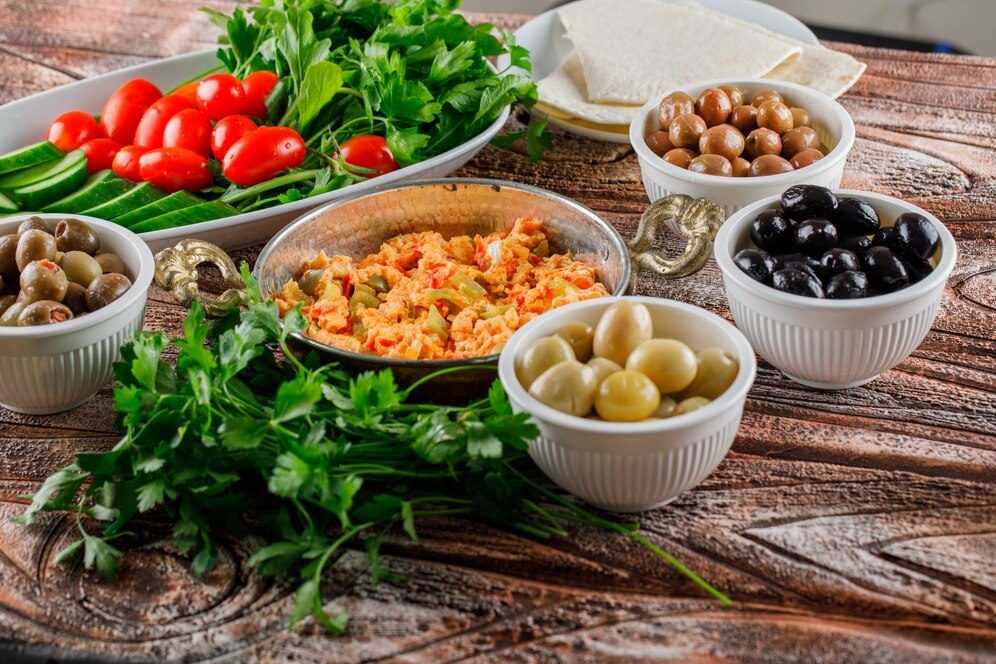
How To Farm Organically
Farmers in the Mediterranean area usually practice organic farming rather than using industrial pesticides and fertilizers. This approach benefits the environment and guarantees better-tasting and healthier food.
Eco-Friendly Fish
The Mediterranean diet emphasises sustainable seafood practices, encouraging the consumption of abundant and responsibly obtained species.
Festivals and eating habits in the Mediterranean
Food is an integral component of Mediterranean culture, and numerous festivals and family gatherings celebrate it. Holidays such as the Greek Easter feast and the Italian Ferragosto highlight traditional meals and communal feasting, bringing people from various cultures closer together.
New concepts for modern Mediterranean cuisine
Modern cooks enjoy Mediterranean cuisine and have created fusion meals that mix traditional flavours with new cooking techniques. This novel concept makes meals more appealing to younger generations.
How to Include Mediterranean Food in Your Diet
Simple Recipes For New Cooks
Begin by learning how to create simple dishes such as Greek salads, hummus, and spaghetti with garlic and olive oil. This dish is simple to prepare and tastes like it originated from the Mediterranean.
Advice on Finding Real Ingredients
Look for nice olive oil, fresh herbs, and seasonally appropriate foods. To find authentic Mediterranean cuisine, visit local farmers’ markets or specialist shops.
In Conclusion
Mediterranean cooking has evolved greatly from the days of old olive trees to modern dining tables. This proves its acceptance and advantages. Foodies all across the world choose it because it is easy to make, has a long history, and includes a variety of ingredients. Take up the Mediterranean diet and enjoy the tastes of this colourful cooking style.


